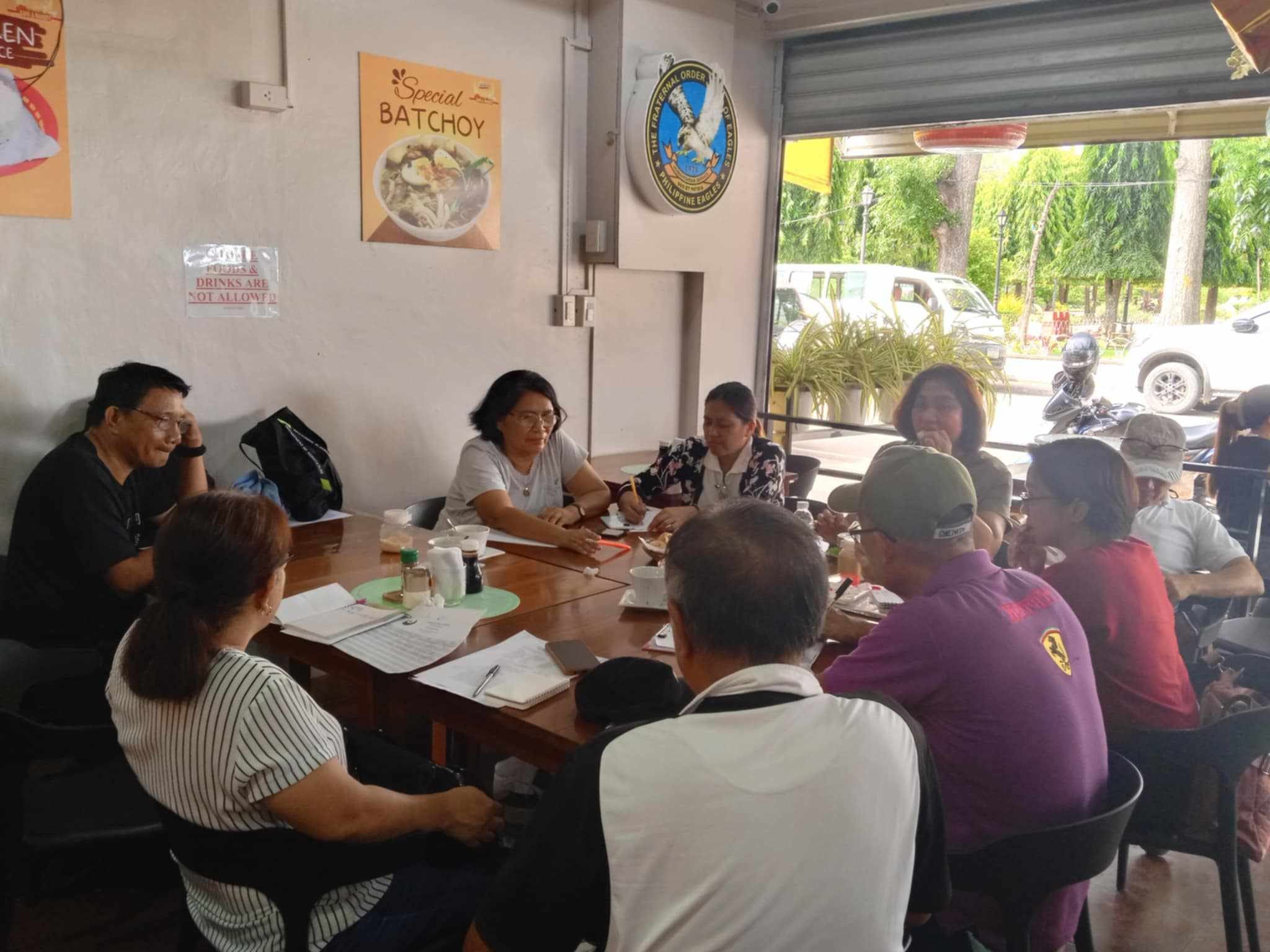In Sta. Barbara, a small but dedicated group of 15 individuals from the business sector and civil society came together for the “Singkwenta Meal” meeting—though only 8 were able to attend, their enthusiasm was anything but small. This gathering was more than just a meeting; it was a testament to the transformative power of the Integrated Participatory Accountability and Transparency Towards Sustainable Integrated Area Development (IPAT-SIAD) program.
A Pre-Meeting with Purpose
The day kicked off with a “Kamustahan” session led by SEA Inc. Sr. Community Facilitator Gideon Palmejar, where graduates from the Inner Conditioning Workshop (ICW) Batch 1 were asked to reflect on how the ICW had impacted their lives. These reflections served as a warm-up, grounding the participants in the deeper purpose of their gathering: nurturing self-awareness and applying what they learned to better their communities.
Setting the Agenda
Presided by CIT SB Chair Ethel T. Sucilla, the meeting officially began at 2:30 pm. The agenda was packed with updates and plans that will shape the future of Sta. Barbara’s community development initiatives. Among the key topics discussed were:
- Presentations of Accomplishments: Celebrating what has been achieved so far, reinforcing the importance of tracking progress.
- Clustered Barangay Orientation on IPAT-SIAD: Orienting local barangays to ensure all sectors are aligned with the program’s goals.
- Department Head Meeting: Ensuring that key municipal departments are involved in the strategy for sustainability and success.
- Community-Level IPAT-SIAD Activities: Engaging the grassroots level for hands-on involvement, making sure the impact reaches every corner of the community.
What’s on the Horizon?
The upcoming months promise to be just as eventful. On October 11, 2024, a CSO Needs Assessment will be conducted with the business sectors to gather insights and evaluate needs. This assessment has been aptly titled “IPAT-SIAD Needs Assessment for Civil Society,” emphasizing the focus on the key stakeholders who will help drive the program forward.
The Tri-Folding Consultation will follow on November 27, 2024. This consultation will bring together representatives from the government, business, and civil society—forming the tri-fold partnership that is the cornerstone of the IPAT-SIAD model. The consultation will focus on deepening collaboration, ensuring that all sectors are moving toward a shared vision of sustainability.
New Faces, New Ideas
A key point in the meeting was the identification of CIT Secretary, with Ma’am Ana Roessa M. Suacito from the women’s sector stepping up to take on this critical role. Her appointment marks a strengthening of the leadership within the CIT, with a focus on policy creation that will guide the tri-fold partnership moving forward.
Why IPAT-SIAD Matters
The IPAT-SIAD program is more than just another government initiative; it is a movement toward sustainable, transparent, and accountable governance that involves every member of the community—from civil society to local businesses to government officials. Its focus on tri-fold partnerships ensures that solutions are holistic and tailored to the community’s unique challenges.
By bringing everyone to the table, the program fosters an environment where voices are heard, ideas are exchanged, and most importantly, action is taken. The program’s focus on long-term sustainability ensures that the progress made today will continue to benefit future generations.
The Road Ahead
The coming months will see key developments in Sta. Barbara, with more assessments, consultations, and activities planned under the IPAT-SIAD banner. As the community works together to build a sustainable future, one thing is clear: the program’s commitment to transparency, accountability, and inclusion is laying the groundwork for real, lasting change.
With each meeting, reflection, and action, the IPAT-SIAD program continues to empower local leaders and communities, proving that when business, government, and civil society unite, they can achieve anything—even in a small town like Sta. Barbara.





Leave a Reply